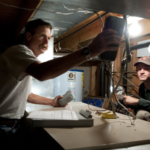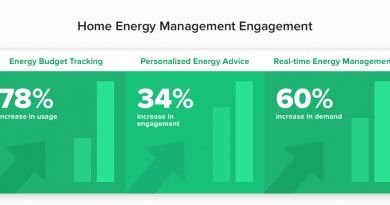Council delays mandate, adopts home energy labeling ordinance – Barre Montpelier Times Argus
Energy Disrupter

MONTPELIER — The Capital City is now more than a year — and a local election — away from mandating those selling homes in Montpelier from providing prospective buyers with energy-related information before any deal is done.
City councilors unanimously adopted a controversial “Home Energy Information” ordinance after another spirited discussion during their virtual meeting Wednesday night, but agreed it will remain voluntary and penalty-free through June 30, 2022.
That’s longer than Mayor Anne Watson would have preferred.
Watson kicked off the conversation by noting, among other things, that the latest version of an ordinance that has generated a fair amount of criticism in recent weeks, delayed the mandatory provision — and the penalties for violations — from this July to next January.
Councilors, who again heard from critics of the proposal, as well as one supporter, agreed the newly suggested 6-month delay wasn’t long enough and a year made more sense.
Even those eager to make a change one resident described as a “small but important step” toward helping the city reduce its carbon footprint agreed that given concerns that have been expressed, publicly and privately, a more protracted pause was warranted.
Watson, whose term expires next March, as do those of council members Dona Bate, Conor Casey and Jay Ericson, said she worried about delaying the mandate for a full year given the potential for turnover on the council.
“A year is beyond next March and you just never know who’s going to be here (on the council),” she said. “Because this is so detail-oriented it might be a lot for a new crew to catch up on.”
That was a risk the rest of the council was willing to take and, while it was at odds with Watson’s personal preference, the mayor didn’t object.
Councilors also agreed to amend the ordinance to reduce the cap on penalties for non-compliance from $1,000 to $500 and, because the ordinance will be voluntary until next July, waiting until this July for it to go into effect was unnecessary.
Councilors agreed the city shouldn’t wait to promote voluntary creation of “Vermont Home Energy Profiles” by encouraging residents to use the online tool that relies on a proprietary algorithm that has been questioned by some and criticized by others.
It was again Wednesday night as the online tool — available at clearlyenergy.com — and the ordinance that will eventually mandate its use, was described by one resident as “half-baked and not ready for prime time” and by another as “an example of citizen harassment.”
Those who have claimed the algorithm produces questionable results that — even if accurate — are marginally useful, reiterated those concerns Wednesday night and said they viewed the ordinance as politically correct overreach that could backfire in ways that haven’t been fully explored, but should be.
Susan Labarthe, a tech-savvy physician, told councilors logging on to the website was problematic and creating a profile that came close to reflecting reality was a two-hour exercise during which she wasn’t allowed to account for a geothermal heat pump she had installed at significant expense as an energy-saving measure and had to guess about the “R-value” of the insulation she had sprayed into her attic.
“I have no idea,” she said, noting the contractor who did that work has since retired.
“Where do I start?” she asked. “Where would my son start after I move to Green Mount Cemetery?”
It was Labarthe who equated the ordinance to “citizen harassment” and urged the council to table its adoption until more data had been provided and analyzed and the online tool was refined.
“Do we really have a clear idea of what we’re getting into and what we’re prescribing to the community?” she asked.
Councilors did hear from a proponent of the ordinance concerned about climate change.
“I’m thinking about my daughter, who is nine years old, and the small but important steps we need to make to become energy literate,” Johanna Miller said, suggesting the home energy profiles would be “crucial information for potential home buyers.”
Benjamin Huffman argued there are better ways to get really useful information than relying on a “mystery algorithm.”
Huffman said it costs roughly $400 for a “complete, thorough professional energy audit” and requiring them is something the council could consider.
“I see no reason why that should not be what is mandated at the point where something is offered for sale with the cost … shared by both the seller and the buyer,” he said.
Huffman said he was dismayed the council wasn’t interested in entertaining other ideas.
“I’m disappointed in my city taking this kind of approach,” he said.
Resident Peter Kelman, like Huffman and Labarthe, acknowledged the ordinance was well-intended, but renewed his worry that when the mandate does go into effect, the city’s most vulnerable residents would suffer.
“When seniors are in a situation where they have to sell their house, this (mandate) is going to harm them,” he said, noting that while councilors explored the question of equity from the perspective of prospective buyers, they did not think about sellers.
Kelman said that was a problem and suggested a slow roll-out, like the one used to prepare for the eventually successful roll-out of MyRide, would be beneficial.
Kelman said he wasn’t convinced the ordinance ever needed to be mandatory and wondered why it didn’t extend to commercial properties.
At first Kelman was told it couldn’t, though that assertion was later retracted and some suggested they would entertain eventually expanding the ordinance to include commercial properties and not just single-family homes.
There are some lingering concerns among council members, including some who were troubled by reported difficulties, as well as complications they could reasonably foresee.
Councilor Dan Richardson, who was the first to advocate for the longer voluntary period, suggested a divorcing couple’s dispute over whether to sell their home could expose one to being fined by the city for failing to create the energy profile before listing the property because their partner claimed the address, preventing them from accessing the online tool.
Richardson said he was open to the mandate, but believed testing it for more time on a voluntary basis would serve to confirm or allay concerns raised by those who have objected to the ordinance.
Casey agreed the additional delay was warranted, but said he believed shifting from voluntary to mandatory next year was important.
“Climate change is real, it’s coming and we need to take steps to address it,” he said, adding: “unless we do things like this, our Net Zero goals are nothing more than a farce and a talking point.”
david.delcore @timesargus.com
Original Source: https://www.timesargus.com/news/local/council-delays-mandate-adopts-home-energy-labeling-ordinance/article_4ad8f634-5d9b-5cf2-a6fc-9cd7eb2fa3be.html
















